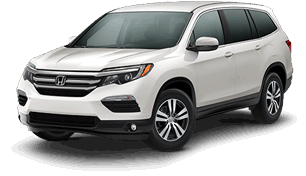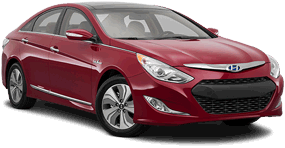Buying a car is a big financial decision and the car shopping process comes with dozens of other important decisions that should not be overlooked. Most car shoppers have an idea of the vehicle type they want (SUV, crossover, sedan or truck) and then start to narrow down the right make and model for their needs. Perhaps even more important than choosing the specific car is the decision to go with a new or used vehicle. This decision will not only impact the purchase price of the vehicle, but it will also play a role in the car's maintenance, insurance, financing and total cost of ownership.
Purchase Price and Depreciation

When you compare the average price tag of a new and used car, buying used can be a wise financial decision. The average transaction price of a new car is around $37,000, while the average used car price is $20,000. Despite the higher average price, one advantage of buying new is that you will usually find special financing and incentives offered by lenders and manufacturers.
On top of the higher initial price tag, when you buy a new car, you take on the bulk of the vehicle's depreciation and when it comes time to trade-in, you'll feel the pain. On average, a new car depreciates 10% in the first month, 20% in the first year, and as much as a staggering 40% in 5 years. To illustrate the impact of depreciation, we looked at Kelley Blue Book's cost-to-own calculator for a new Ford F-150. The F-150's 5-year cost-to-own adds up to $40,138, $16,764 of that number is attributed to depreciation.
Auto Financing

Unlike the vehicle's transaction price where used cars have an edge, when it comes to financing, buying new presents some unique benefits. Manufacturers often subsidize a lower interest rate as an incentive to sell more of a certain model or boost overall sales. While the average car loan interest rate currently hovers around 4%, manufacturers offer rates at a fraction of this number, sometimes as low as 2% or less. Buying new also means having the option of getting longer loan terms and lower monthly payments. Even if you're able to, you should avoid stretching out the car loan too long due to the risk of ending up underwater.
On the other hand, the upfront costs of financing a used car can be a lot more comfortable because the down payment will be smaller. You're also less likely to end up underwater on the car loan when you go with a used car since you're bypassing the high depreciation of buying new. For shoppers with compromised credit, getting a car loan on a new vehicle can be a challenge. Finding a dependable used car at a lower price and having at least 10% as a down payment will make it easier to obtain a car loan even with a low credit score.
Find a Great Rate on Your Car Loan
Insurance Rates and Warranty

Factoring in the total cost of ownership is important when considering if you should buy new or used. Most of the time, a used car will be less expensive to insure than a new vehicle and you'll be able to bypass purchasing some coverage types. For example, you might forgo comprehensive or collision coverage on a lower-value used car while you'd need to purchase it for a new vehicle due to lender requirements.
In some cases, lenders will require a new car buyer to have gap insurance on the vehicle which brings costs up even more. Gap insurance protects the lender by covering the difference between the car's value and the remaining loan amount if the vehicle is totaled.
An advantage of buying new, when it comes to the cost of ownership, is that you'll get a warranty on the vehicle. The automaker's warranty means bumper-to-bumper coverage is included in the price of a new car and is offered for 3 years or 36,000 miles. You'll also be able to get an extended warranty from the automaker for protection that extends the original warranty. This can save you a significant amount on repair costs which can quickly add up, especially with used cars.
Shopping Experience and Risk Factors

The items discussed above should be carefully evaluated when deciding whether to buy new or used but there are some non-financial variables to consider as well. The shopping process for new cars is typically easier and more straightforward since you know exactly what you're getting and the pricing is more transparent. When buying a used car, along with the reward of the lower price, you also take on more risk. You should get a vehicle history report to see information like past accidents but there is no guarantee that the report will show everything accurately. Since most used cars are sold "as-is", if something goes wrong, the cost of repairs falls on your shoulders no matter how soon they occur.
Although riskier, buying a used car opens up more options for finding the right vehicle at the right price. Instead of just having one option (going to a new car dealership) you can look for used cars at car lots, private sellers, and car auctions. These alternative avenues for buying a vehicle usually offer lower prices and more flexibility for financing, regardless of credit score.
If you're still having trouble deciding if you should go with new or used, a good compromise is to buy a certified pre-owned vehicle. A certified pre-owned car has been inspected by the manufacturer and if there are any issues, they are repaired before the vehicle is sold. Certified pre-owned vehicles also come with a factory warranty for components like powertrain and electrical. Buying a certified pre-owned car lets you avoid taking the depreciation hit of new cars after the first year and also gives you the peace of mind knowing the vehicle is mechanically sound.


